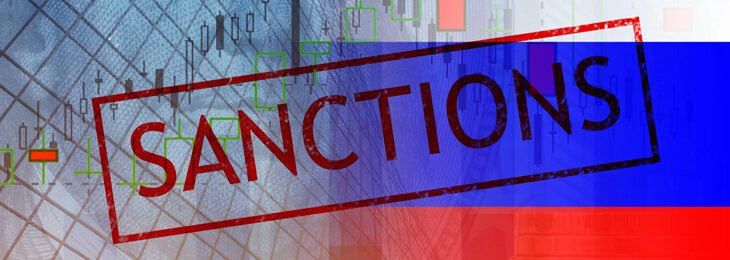
An AML guru, an AML/OFAC compliance officer, a retired law enforcement officer, a compliance system IT specialist and an AML communications specialist walk into a bar (stop me if you’ve heard this one). The communications specialist asked what was the greatest communications or training challenge facing the AML industry today. Each member of the group came up with a very different answer. Each answer focused on that individual’s area of expertise and responsibility. Most of the answers were not clearly communications or training oriented. Some of them might be called “management issues.” While the responses did not expressly answer the question, they were all valid issues facing each of the respondents. As you might expect, there was some animated discussion about which issues posed the greatest challenge to the AML professional.
However, within the diverse and complex responses lay the simple answer to the question. The greatest communications and training challenge of the future is diversity and complexity. The AML arena has expanded exponentially. Much of this expansion is technology driven. While technology has provided excellent tools to combat money laundering and related crimes it has also provided excellent tools to commit those crimes. The criminals have two distinct advantages in this game. Number one is that they get to move first. As proactive as the various arms of the AML profession try to be, much of our work is reacting to the latest trends and schemes of the criminals. The reason we have to play a lot of catch-up is a direct result of what some consider the criminals’ greatest advantage. Number two is that they do not have dwindling budgets to adhere to, laws and treaties to comply with and often complex reporting and approval structures with which to deal. In short, the bad guys do not have red tape.
So how does this relate back to a communications challenge? The challenge is not staying up with the current news and research on AML issues, though the volume is certainly daunting. After all, being aware of the business and regulatory environment is an absolute requirement of the job. Rather it is the ability of the AML profession, compliance officers in particular, to not only understand their environment but to be able to clearly and accurately articulate it to the stakeholders in the concerted effort to halt money-laundering and stay in compliance with dynamic regulatory demands.
There appears to be two solutions. The first is available to only a few of us and that is resources. For those that can afford it, simply follow the maxim that any problem can be solved if you throw enough time, money, technology and bodies at it. With these kinds of resources, you will have all the data you need completely, concisely and accurately waiting for you in your inbox each morning. With that in hand you can communicate data, needs and requirements to your AML stakeholders with little problem. Who has those kinds of resources? Maybe the bad guys, but we all know they have another agenda.
The second solution from a communication standpoint is a simple skill that often takes a lifetime to master, if it is mastered at all, and that is the ability to cut through the constant flood of data, news and misinformation to see the core messages. Some people have an innate ability to do this and it serves them well. Others have many other skills available to them but the ability to comprehend and then communicate diverse and complex subjects does not come easily. Without this skill, it is extremely challenging to manage the resources it takes to be an effective AML professional.
Do not despair. By applying a few strategic concepts, you can learn to master this skill.
First, do not panic when faced with a flood of information. Many people never keep up because they are intimidated by the constant flood of data that comes across their desks and emails. If you take a quick look at everything you will soon learn what is potentially valuable content and what is simply noise. Then, do what it takes to reduce or eliminate that noise. Opt out of data feeds that have no bearing on what you do. It is just as important to take note of what makes information feeds noise to you. That knowledge is invaluable when you are crafting messages to your stakeholders that you don’t want them to ignore.
Second, unless you are a super computer you cannot know and understand everything. Focus on certain types of information that are critical to your job. Seek out and cultivate other people focusing on other areas of knowledge. Create an information-sharing relationship to have access to the condensed knowledge you need. Learn from your knowledge partners their best practices for sifting through information and be willing to share yours. Both of you will benefit and be more effective in your common goals.
Third, make the effort to differentiate between what you think you need to know and what you really need to know to accomplish your specific set of objectives. It is easy to clutter your brain with information that is really interesting, but not applicable to your job. Today’s information environment does not allow us the luxury of spending any time on information we don’t need to do our jobs.
Lastly, reverse engineer conveying the critical information you take in so that you can effectively communicate it out to others. There are those out there that are relying on you to sift through the noise and give them the data they need to do their jobs more effectively. Take note of the styles, formats and vehicles that work best with your stakeholders and ensure that your communications don’t have the elements that you found ineffective or confusing. You’ve sorted through the noise, now make sure you don’t pass it along.
The flow of information we receive is only going to grow. Having the ability to effectively sift through it and transfer the critical points to others is an invaluable job skill in order to be an effective AML professional, no matter where your responsibilities lie. Cultivating this skill is a career-long task well worth undertaking.
Have a compliance communication issue you want to address, or perhaps a best practice or war story of your own that you’d like to share with your fellow compliance professionals? Send it in to stories@compliancecomm.com. Our goal is to help everyone become better communicators. We’d love to have you contribute to this effort.










